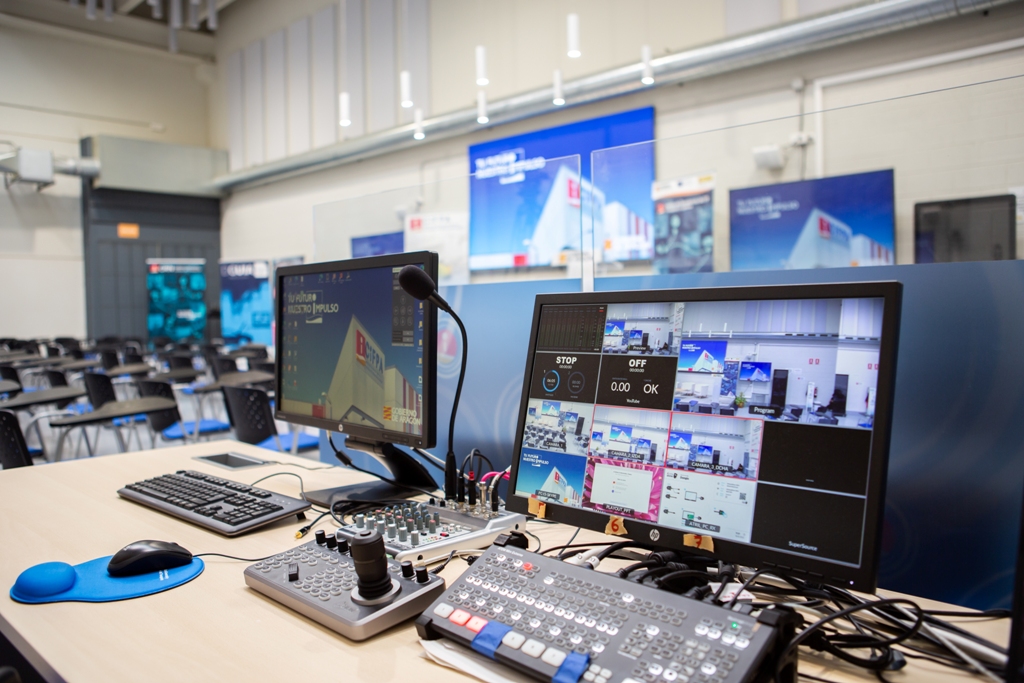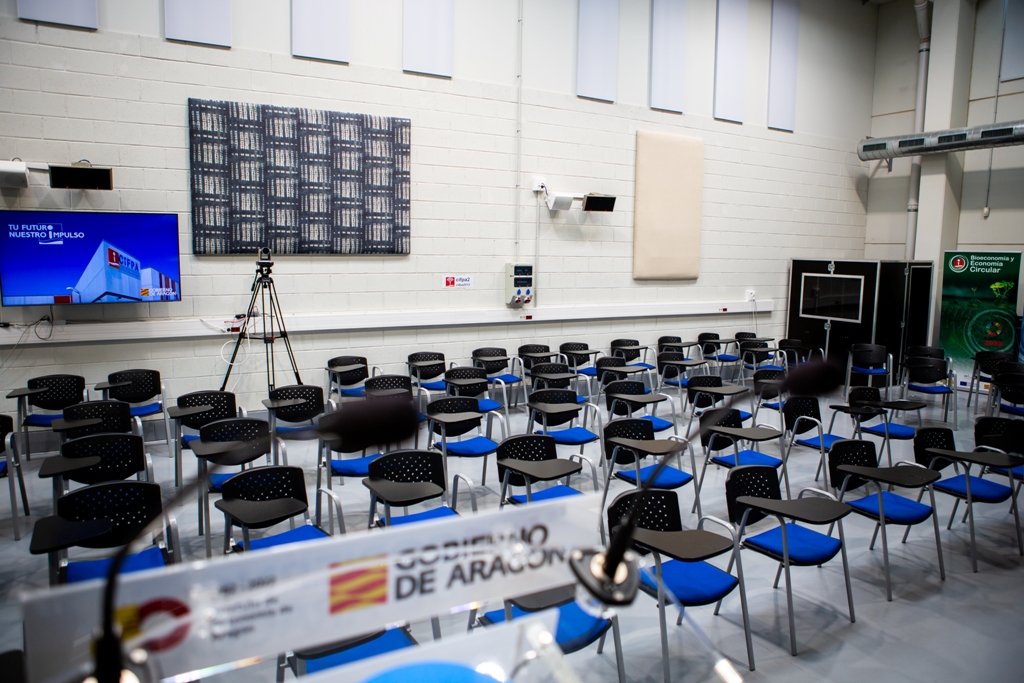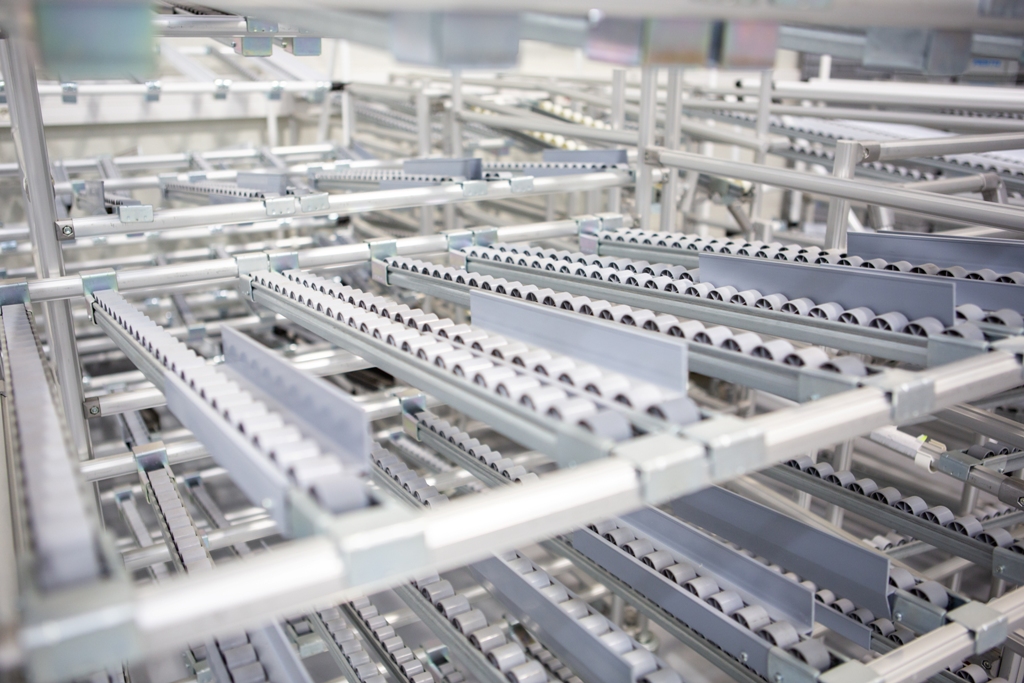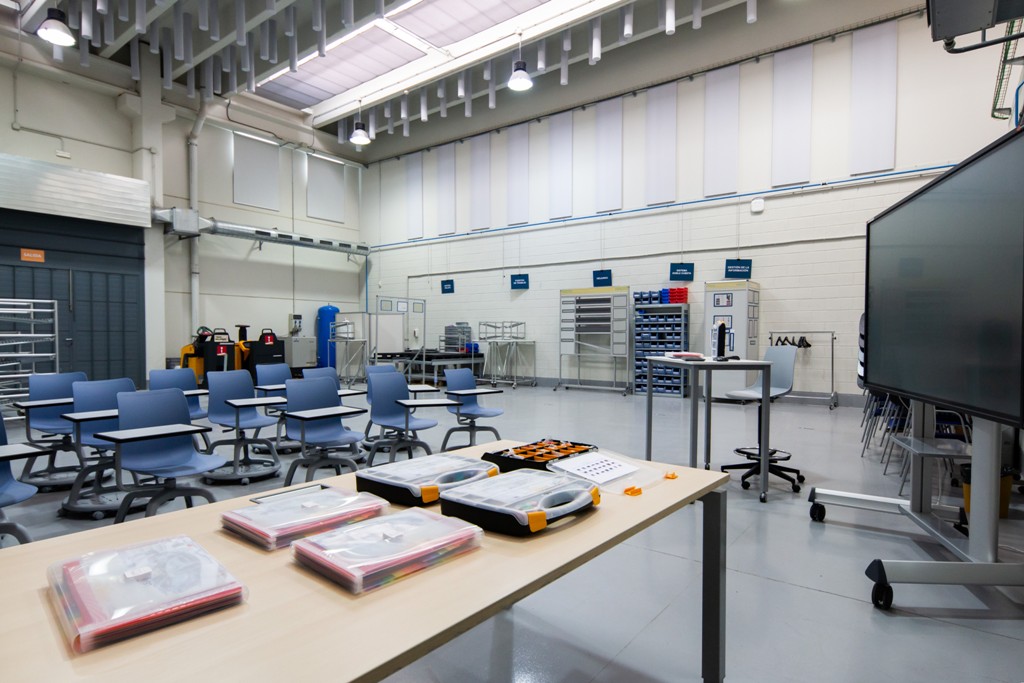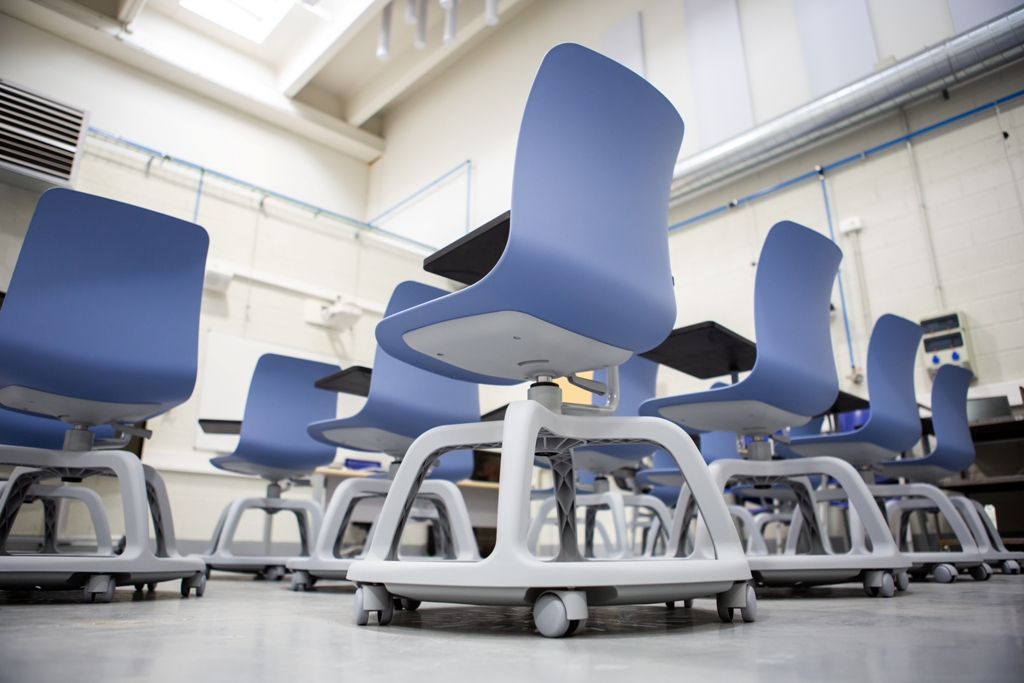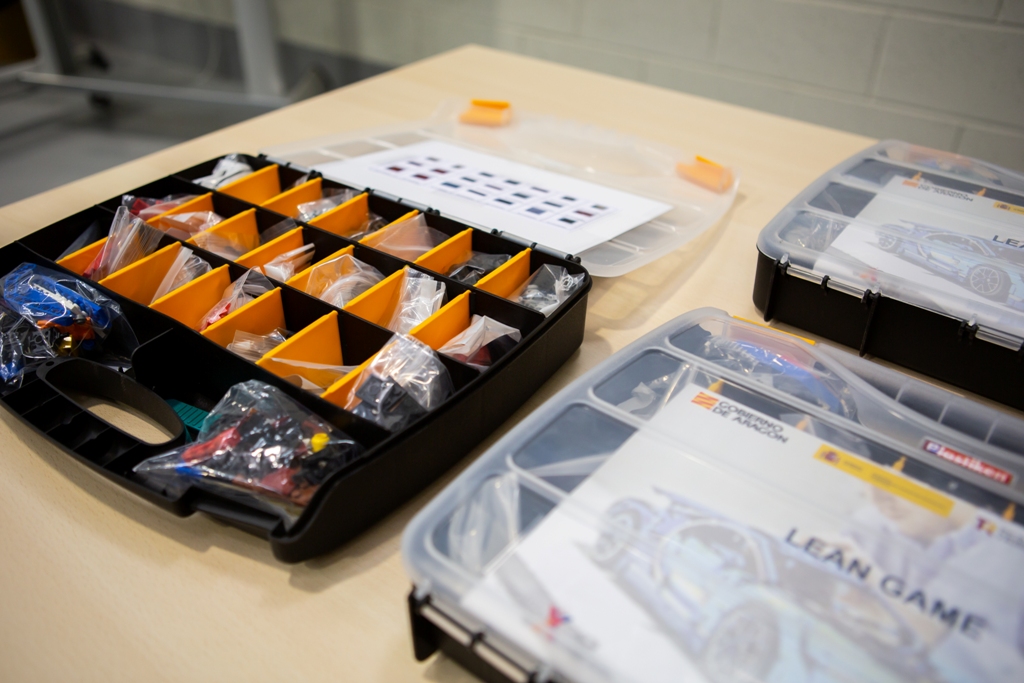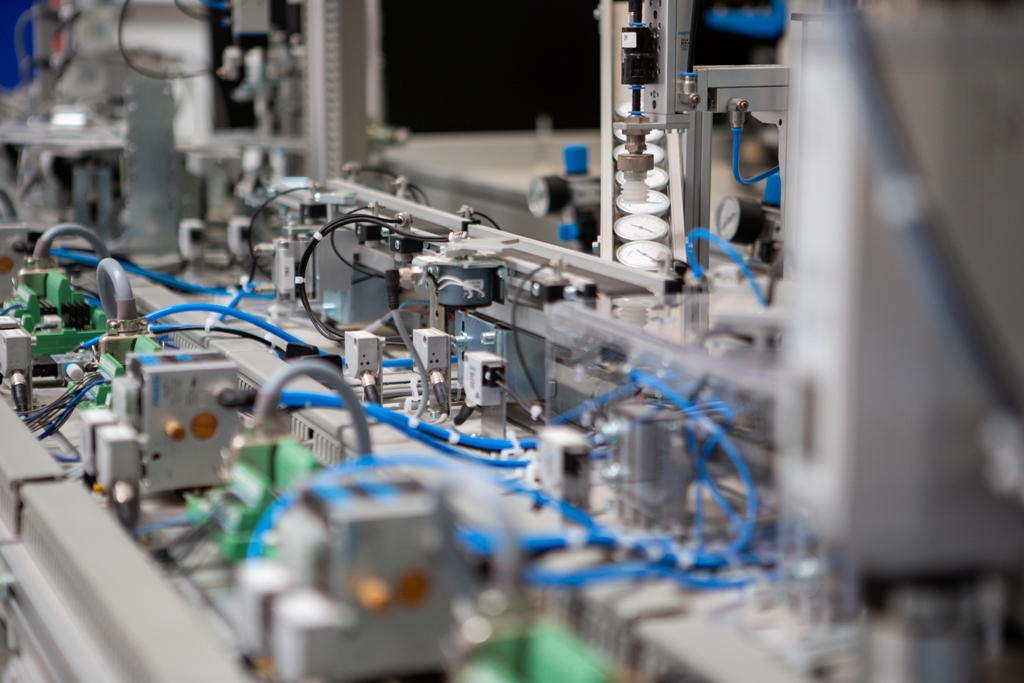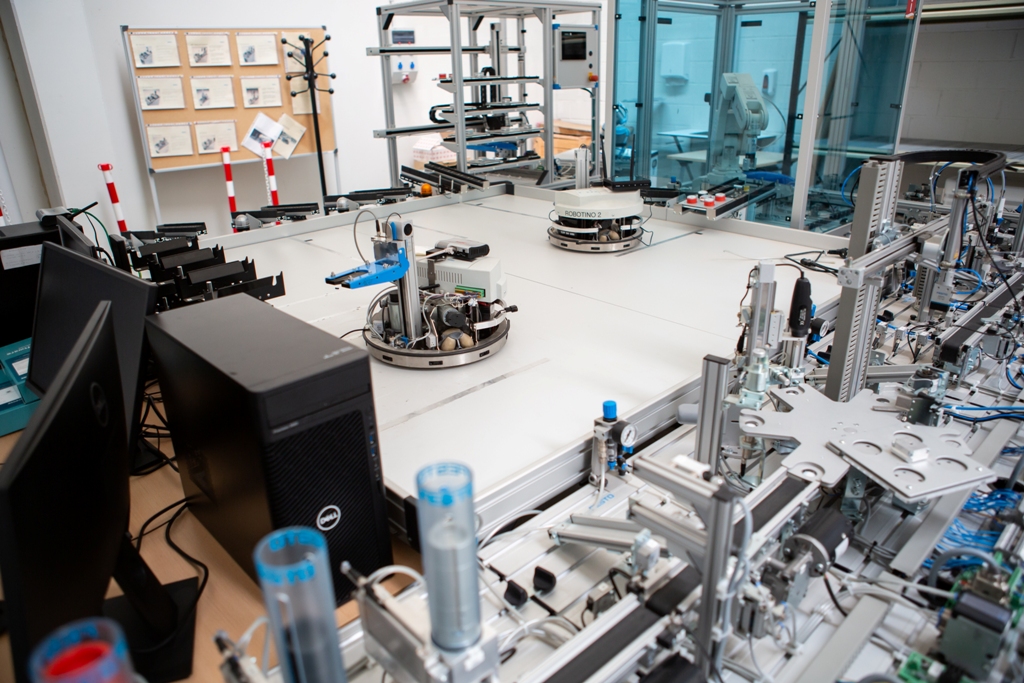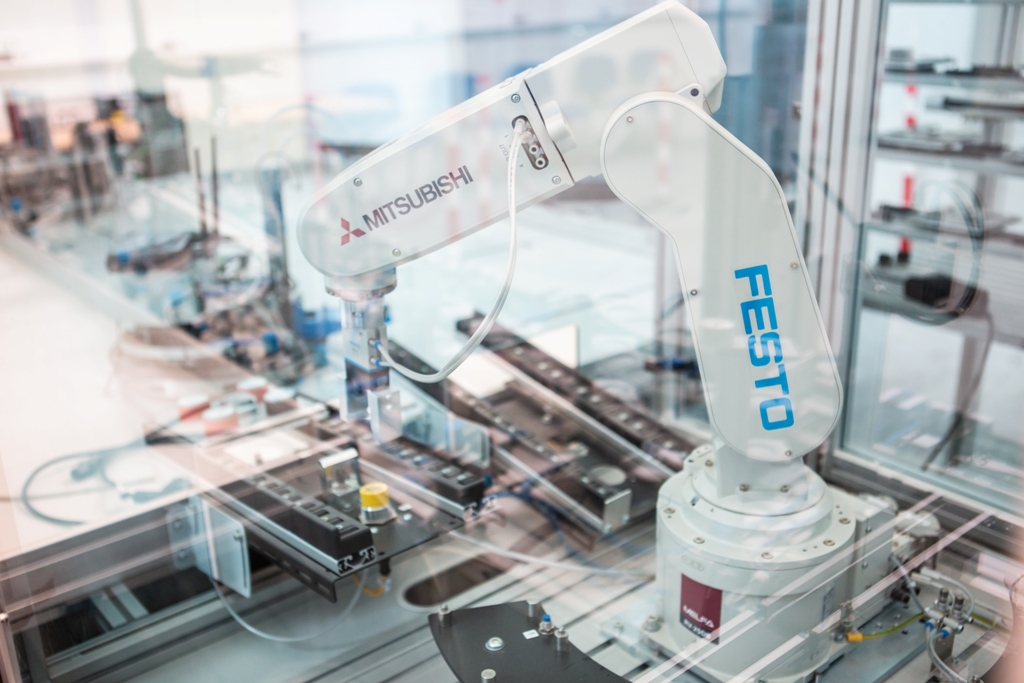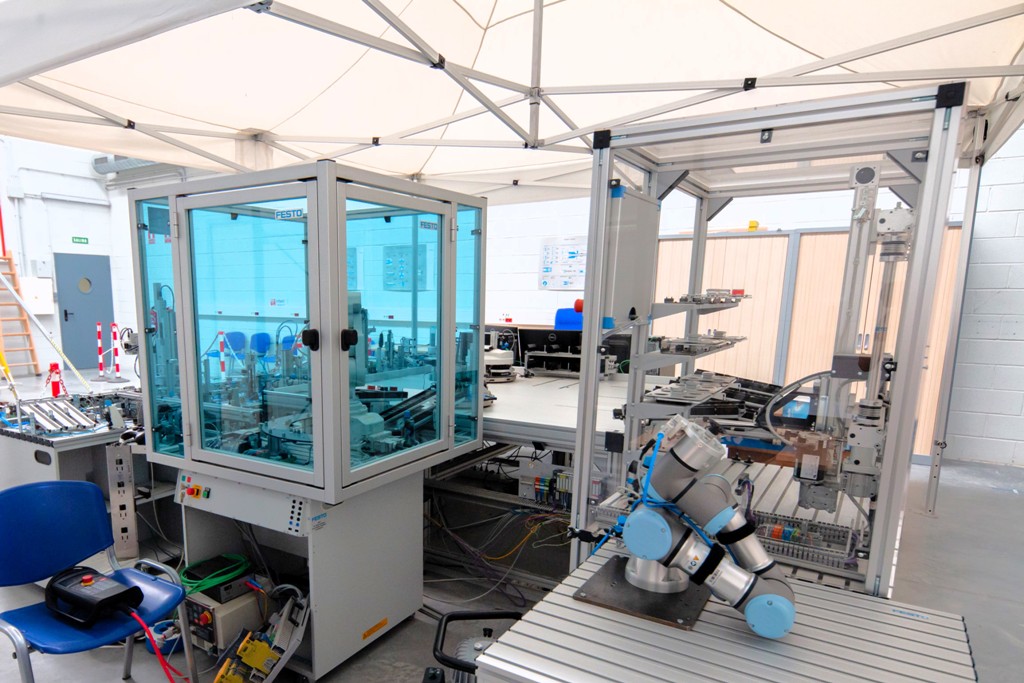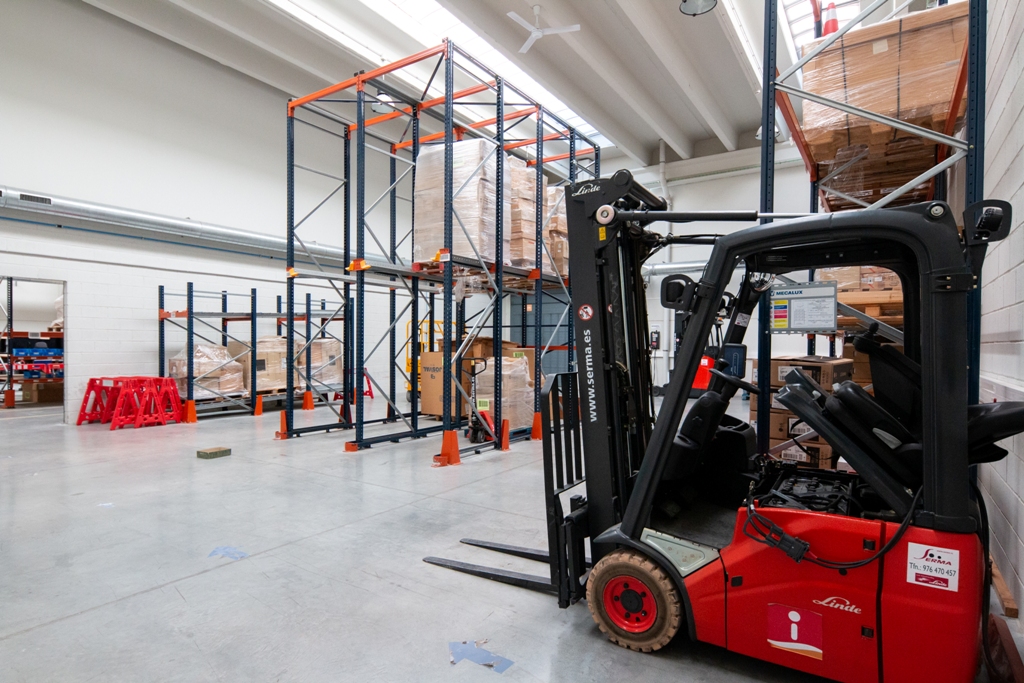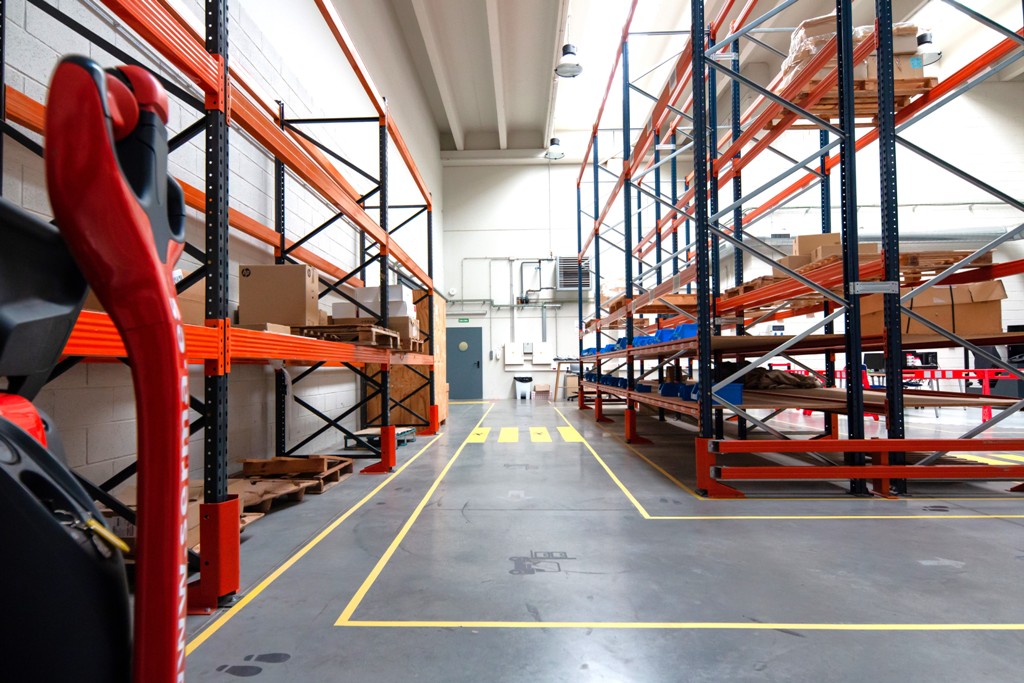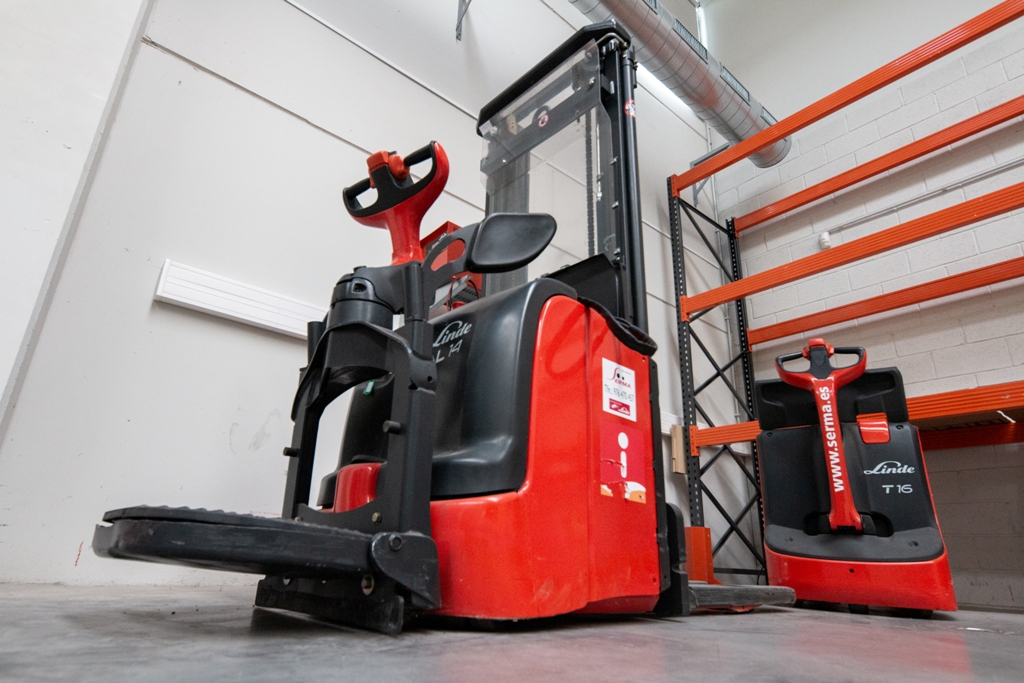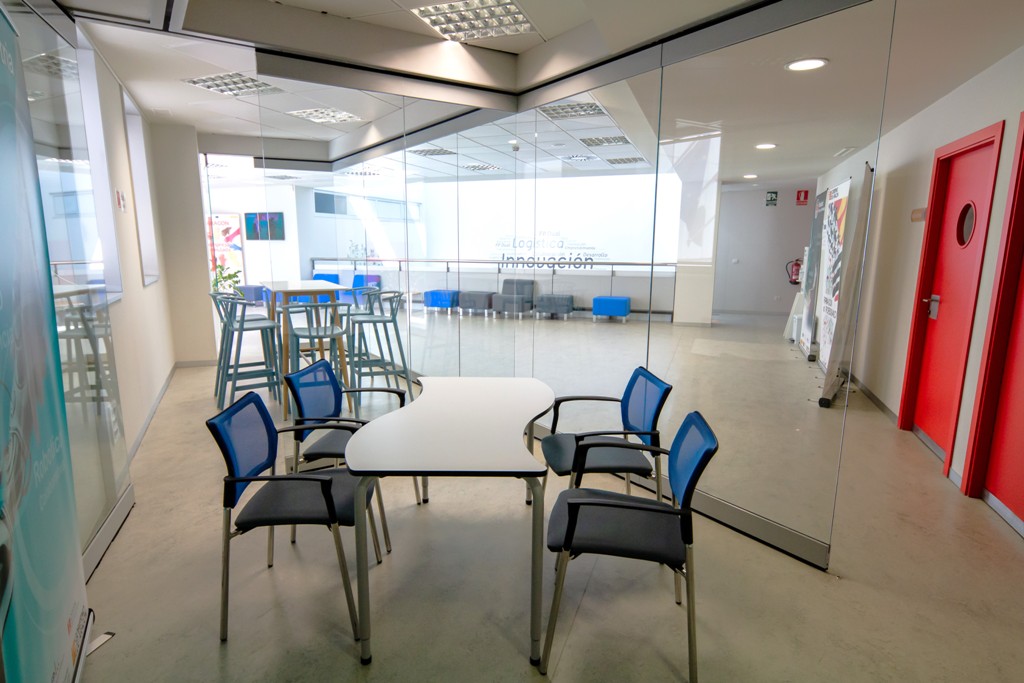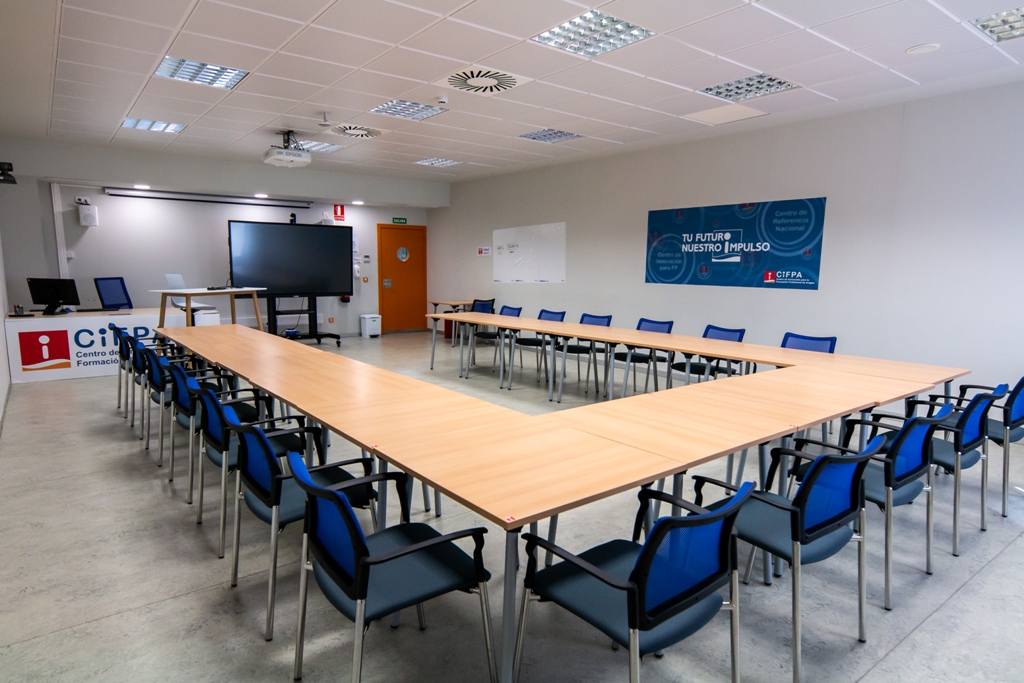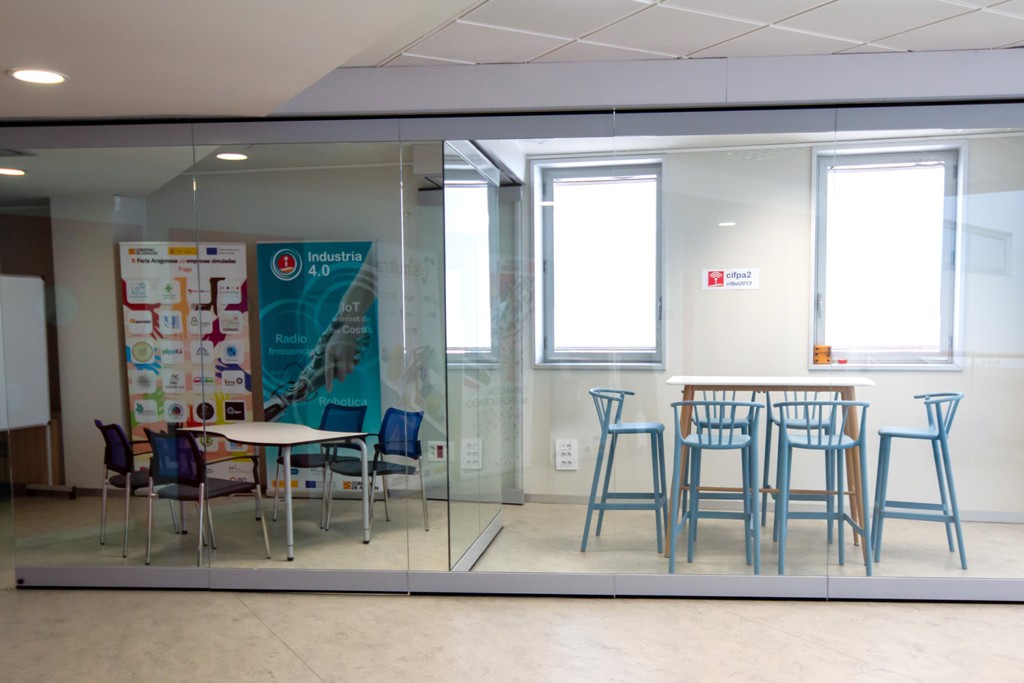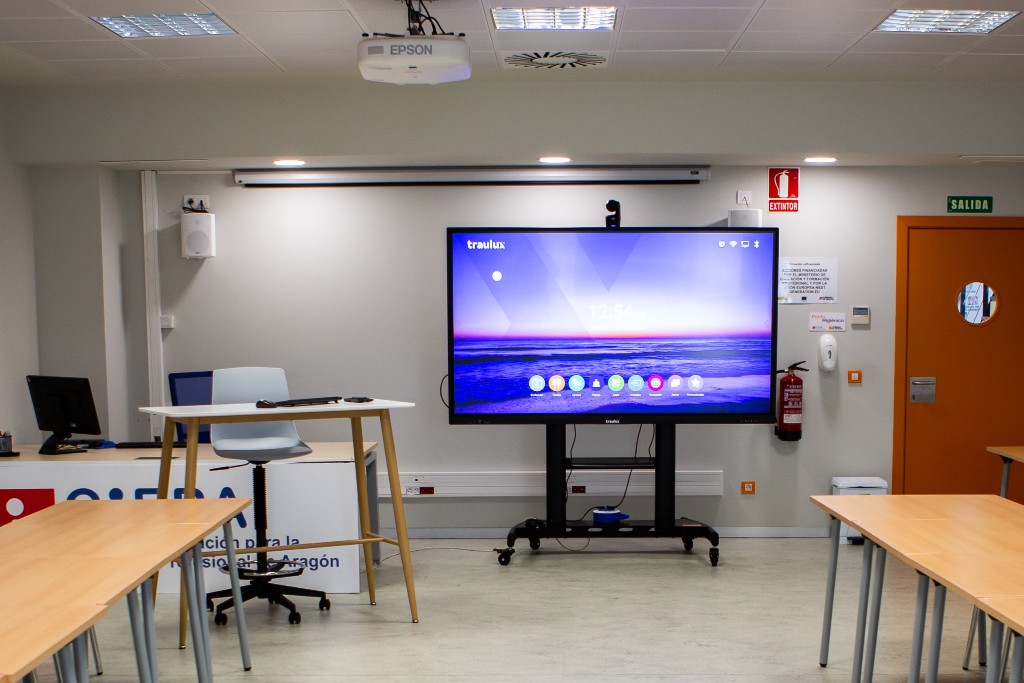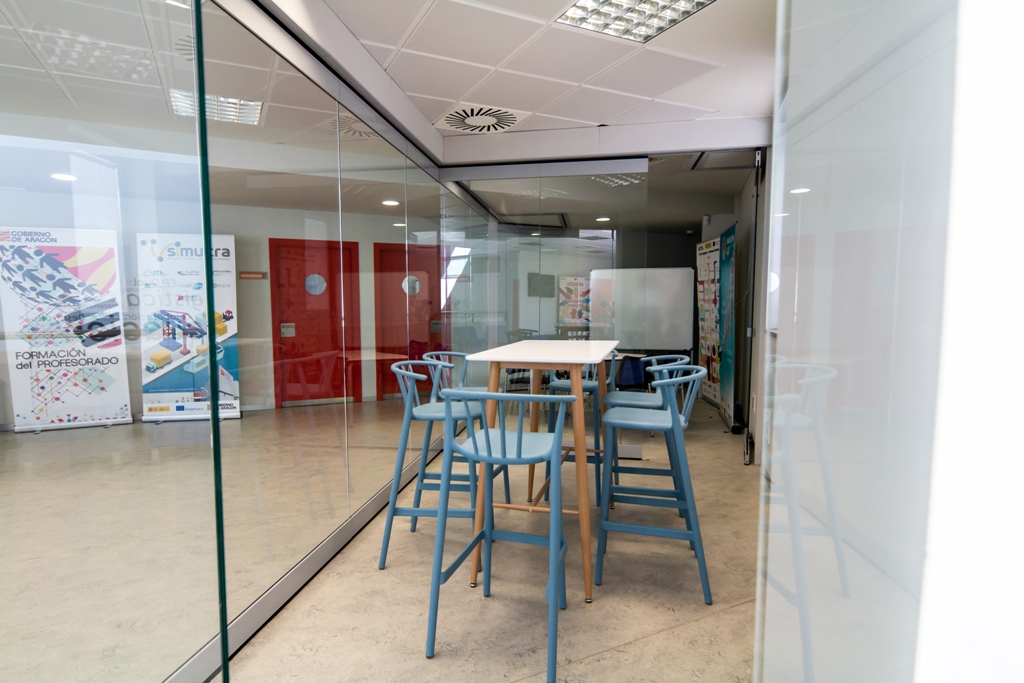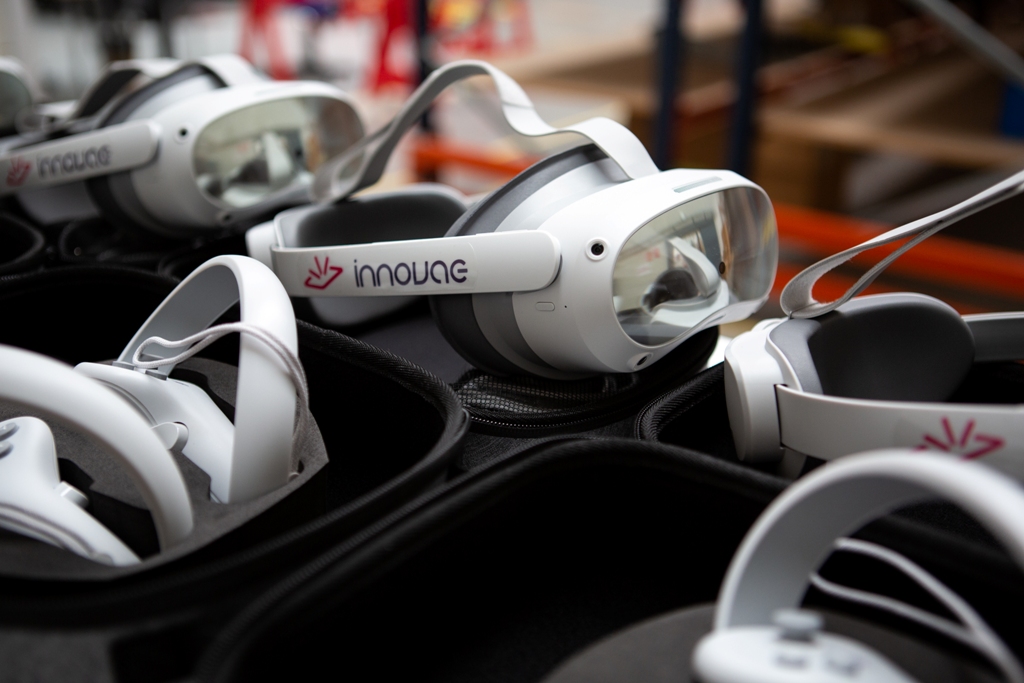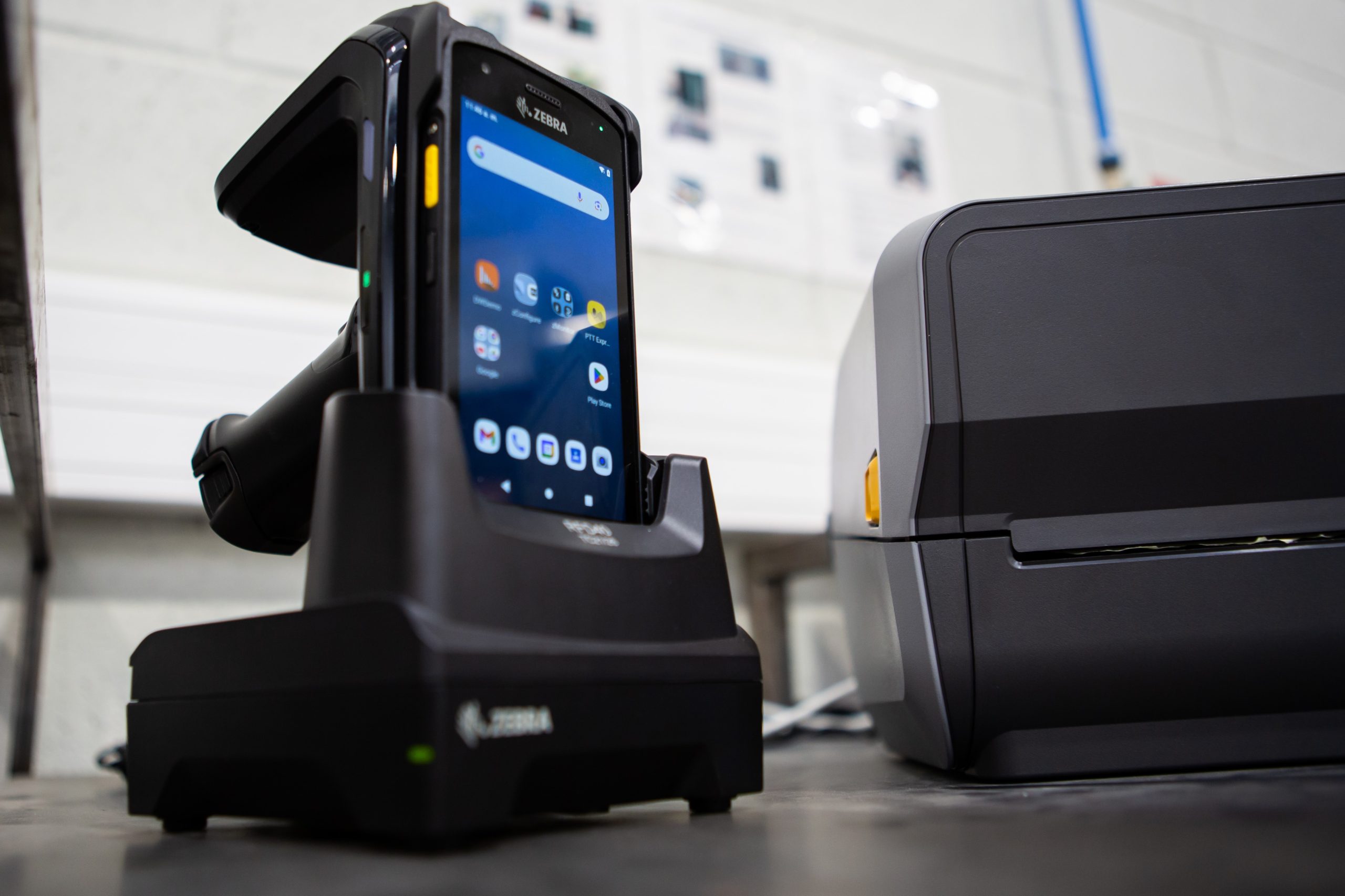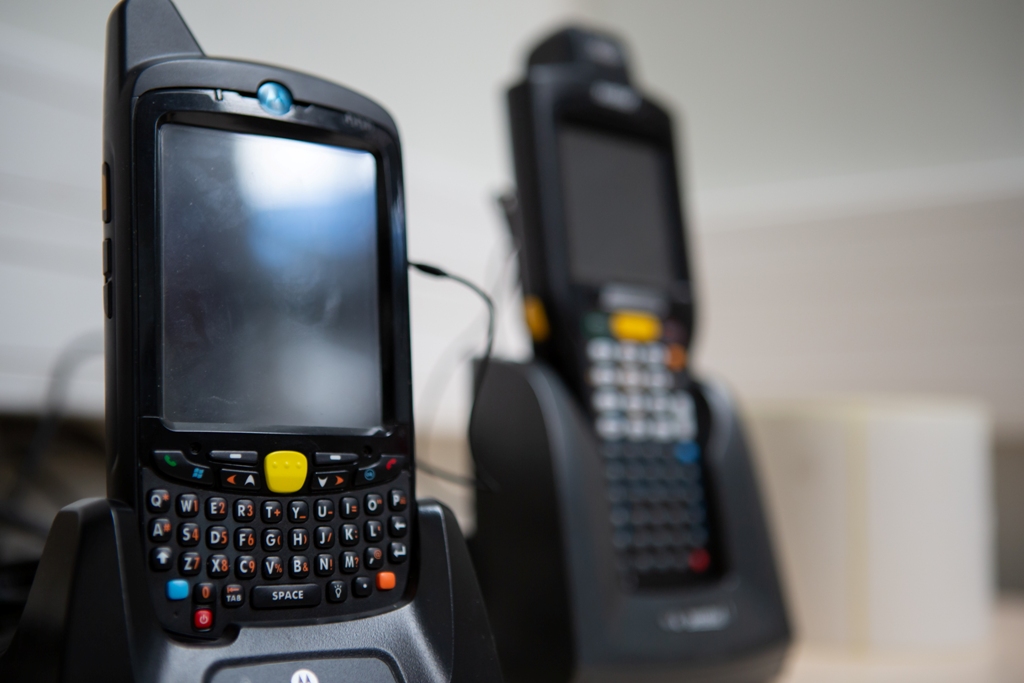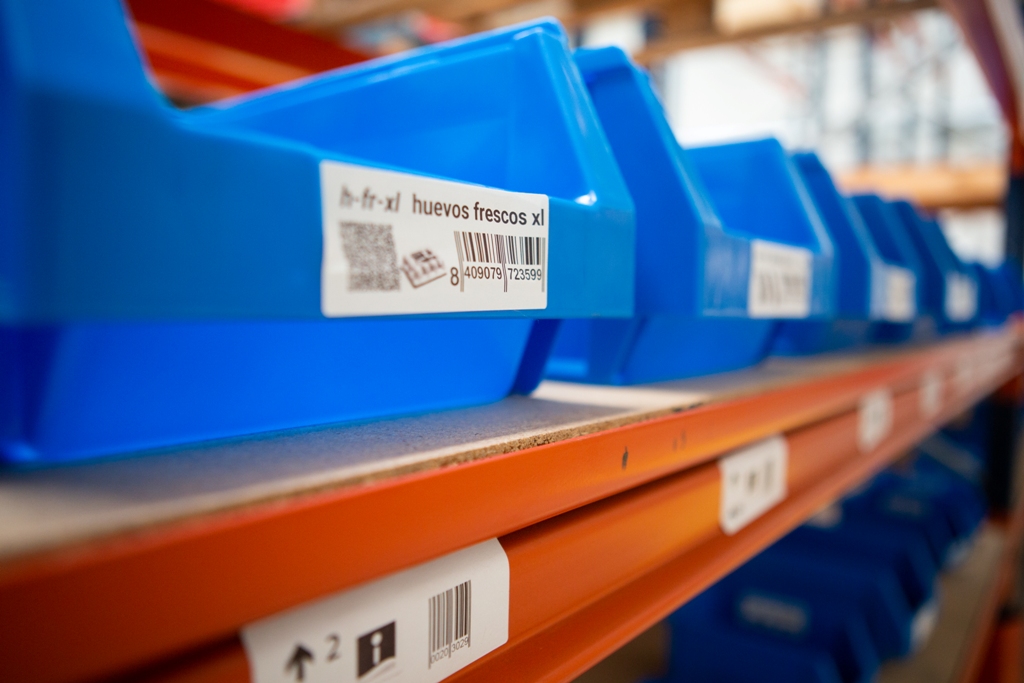State Network of Centers of Excellence in Vocational Training
Sector: Transportation and Logistics
Primary Project 1: Technological, digital and methodological transformation of the center.
The technological, digital and methodological transformation has focused on the renovation of certain spaces and classrooms of the center, creating open and flexible spaces to favor the consolidation of innovative collaborative methodologies; and on adapting them to the models best suited to the demand of teachers and companies in the Transport and Logistics sector.
This update ensures the development of training activities for teachers and workers; innovative actions between centers and companies, and research proposals of different levels of complexity in the same spaces and with the possibility of using flexible devices adapted to the proposed activities, in collaboration with transport and logistics companies, committed and close to our center and to Vocational Training in general.
The main transformations have taken place in the following areas and lines of work at CIFPA:
1. CIFPA Plaza
Adaptation of spaces, mainly classrooms and the Plaza CIFPA space, at a technological level to contribute, among other things, to the methodological transformation and dissemination. From large-format interactive touch screens, cameras, totems, microphone equipment, sound control, etc... to acoustic adaptation, natural lighting control and improved connectivity.
2. LEAN Space
In the Lean Space, related to the first innovation project, a simulation game of a production plant, Lean Logistic Factory, has been designed and developed, which will allow the educational community to experience the problems and efficiency of logistics processes, both in procurement, storage and distribution, to discover for themselves the concept of continuous improvement and to understand the use of the main tools of logistics and lean manufacturing. In addition, this didactic resource is based on gamification methodologies and continuous improvement simulation. This is complemented by Lean Games sets and associated software that allows a virtual simulation of the Lean methodology and provides a series of templates and tools that can help identify relevant KPIs, set objectives and develop action plans.
3. INDUSTRY 4.0 Space
The second innovation project has been developed in the INDUSTRY 4.0 Space, which has been updated as a didactic scenario for training courses in the Transport and Logistics sector. Mainly, elements for the application of new technologies and methodologies of the sector are updated through the implementation of a Warehouse Management System (WMS) software that will allow to interconnect this logistic warehouse of the center with all the activity of the center, and that will serve as a model of use for the rest of the educational centers of the national network. In this way, the interaction of companies interested in the investigation of warehouse management systems is also made possible.
4. LOGISTICS Space
The second innovation project has been developed in the LOGISTICS Space, which has been updated as a didactic scenario for training courses in the Transport and Logistics sector. Mainly, elements for the application of new technologies and methodologies of the sector are updated through the implementation of a Warehouse Management System (WMS) software that will allow to interconnect this logistic warehouse of the center with all the activity of the center, and that will serve as a model of use for the rest of the educational centers of the national network. In this way, the interaction of companies interested in the investigation of warehouse management systems is also made possible.
5. Spaces for Innovation Projects
Actions have been carried out for the technological and digital updating of classrooms, as well as the creation of a new room, in order to favor communication, collaboration and the development of ideas for the innovation projects included in Primary Project 3.
6. Cross-cutting actions
In addition, the following technology is added to all this transformation in a cross-cutting manner:
- Digital traceability system in logistic processes, equipped with radiofrequency technology (gun, RFID-Radio Frequency IDentification, PDA and printers),
- Collaborative robot and PLCs (programmable logic controllers) to upgrade and automate the Logistics Factory space.
- Virtual/mixed reality glasses that incorporate a simulator designed for the teacher of Transport and Logistics together with their students to have an immersive and formative experience in Occupational Safety in a plant or logistics warehouse.




